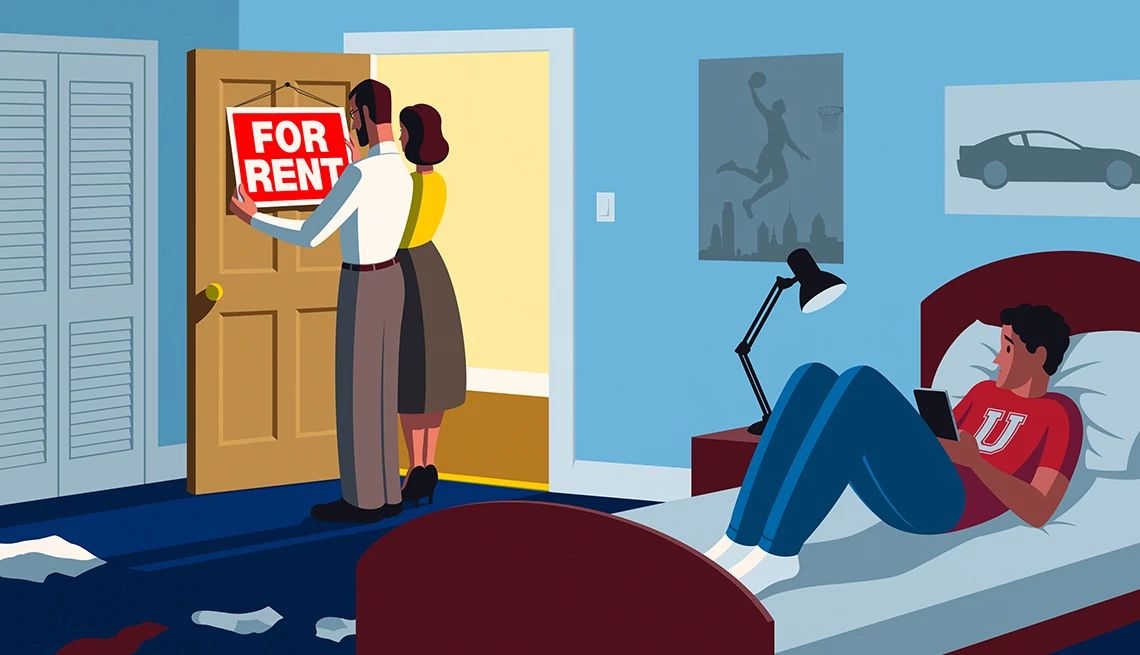AARP Hearing Center


If your kids are young adults, there’s a good chance they’re still living under your roof. Nearly half of all U.S. adults ages 18 to 29 are living with family, the highest level since the 1940s, according to a recent Harris survey for Bloomberg.
There are a variety of reasons “boomerang kids” shack up with their folks. Some are buried in student loans. Some are in credit card debt. Some are struggling to find work or are stuck in a low-paying job. And some are just content living with their parents while they’re in their 20s or 30s.


Money Manners
Lizzie Post is AARP's financial etiquette columnist. She is the great-great-granddaughter of etiquette legend Emily Post. She’s also the co-president of The Emily Post Institute, co-author of Emily Post’s Etiquette: the Centennial Edition and co-host of the Awesome Etiquette podcast.
Record-high rents are also making it more difficult for younger adults to establish financial independence. Thirty percent of respondents in the Bloomberg poll said they moved home because they couldn’t afford to live on their own.
Having adult kids move back in can put a financial burden on parents. But how do you broach the subject of charging junior rent without harming your relationship?
Our son is 28 years old and living with us. He has a job, but he’s shown no interest in finding his own place. We want to start charging him rent to help pay the bills. At the same time, we don’t want to make his childhood home a place he feels unwelcome. We’re wrestling with this decision. Any suggestions?
This is becoming a more common living arrangement in American families. It used to be expected that at 18, you were an adult headed out into the world to start making it on your own. My mother jokingly calls kids who return home after college or after venturing out on their own for a few years “bounced checks.”
Whether you’re thrilled to have an adult child back at home or you’re feeling a bit like your kid is cramping your lifestyle as an empty nester, I think it’s worth exploring some arrangement that has them being a contributor to the household.































.jpg?crop=true&anchor=13,195&q=80&color=ffffffff&u=lywnjt&w=2008&h=1154)






























You Might Also Like
I Want to Ask My Fiancé to Sign a Prenup, But I'm Nervous to Bring It Up
Our etiquette expert offers advice for older couples on how to address this touchy subject
We Offered to Pay for Our Son’s Wedding But Forgot to Set a Budget. Help!
These parents learned how wedding expenses can spiral out of control
My Grandkids Don't Thank Me for Gifts. What Should I Do?
One doting grandparent's struggle — and our new money etiquette columnist's advice